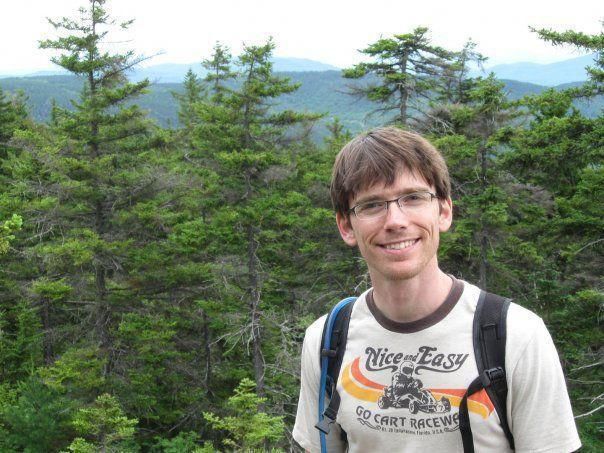Some information may be outdated.
I have this memory: darkness shrouds everything.
I am alone. There exists no explanation of how I arrived here. I sense only black stillness and an aching need, a sad wish to find the outlines of my inky cage. But there is no way out. There may not even be an outside. For all I can discern, this pitch veil represents reality for all time. This is existence — black, unpopulated, frightening.
Then, in the darkness, I feel a hand fit itself into mine. The palm is warm, the fingers familiar. I am suddenly embodied inside a sea of nothing, connected to an anchor. More lies beyond the darkness. Cold absence gives way to hope. Attention narrows. And a powerful truth makes itself known: this right here, this hand in mine, this is the only thing I ever wanted. An impulse rises of its own accord. I squeeze three times, as basic and blatant a code as ever existed.
See, a month after I graduated from high school, I’d been riding my bike when a car turned across my lane. Its fender broke my bicycle, and my head broke its windshield. I spent three days in a coma. There was no telling when or how I’d emerge. My family waited and pondered the neurologist’s warning: he may be different.
For my part, I’m glad I didn’t have to watch my family fret. This period in coma was probably easiest on me. The ensuing months of surgeries and physical, occupational, and speech therapy were not easy though. I fell into depression as my life collapsed and then kicked me repeatedly with new losses: discovering years of memory stripped away, becoming estranged from my girlfriend, getting robbed of my athletic dreams, struggling at academics that once came easily, failing my best friend, feeling humiliated at each hug offered by people who’d been erased from my past.
The term “identity crisis” cannot capture the horror of losing one’s sense of self. Little in life can gut a person so thoroughly, because these things we use to describe ourselves are the foundation for relating to the world and people in it. If you’re not a dancer, who are you? If not a parent, who are you? If not a wife or husband, who are you? If not a brother, sister, athlete, academic, or singer, who are you?
It’s terrifying to be cut adrift from our identifiers.
While recuperating, I read an important book — “Way of the Peaceful Warrior.” It was important because of the content, but it was also made important by my impressionable healing brain. Upon closing the last page, I looked out over Vineyard Haven Harbor and experienced an altered state of awareness. It was an astounding peace that I’ve called up many times since, an acceptance of the world as it is, not as I wished it. Since that day, my depression never came back. I credit the book with helping set the stage for this epiphany, but I didn’t fully understand the implications of this state of consciousness until 19 years later.
This past June, I made a vow of silence. We all did.
Two dozen of us had gathered at WonderWell, a meditation center overlooking the mountains of New Hampshire. Ours was a retreat aimed at people of all faiths. Lama John Makransky invited us to ground our practice in the felt qualities of heartfulness. Our foundational meditation centered on caring moments. We recalled times when, as John put it, someone was “with you in a simple loving way, happy you exist, taking joy in you, wishing you well.” Throughout the week, we built upon this, progressing along a trajectory rigorous and amazing.
Each morning, we gathered in the meditation hall and gradually grew our caring moment contemplation into an expansive love for all. During some of our challenging sessions, we wept — with joy, with sadness, with unknown private sentiments. During others, we laughed.
I began to recognize a familiar sensation — an absence of agenda and judgment, a warmth underlying all, a crumbling of boundaries between us. This practice reminded me of that moment at Vineyard Haven Harbor; stories of what was and what will be fell away, leaving the present and a pervading sense of joy. It reminded me of a resounding dream I experienced beside my wife in moonlit Death Valley National Park four years ago when I realized what it meant to be home. It recalled that cherished anchor: a hand in mine amidst the darkness.
It’s taken two decades to understand. Why is it so easy to forget, so easy to ignore? Rumi wrote, “You are like a pearl on the deep bottom, wondering inside its shell, Where’s the ocean?”
Here it is. Right here. Take my hand. That blatant code, three squeezes of a warm hand — I LOVE YOU — is all we ever wanted.
Daniel McNeil is the director of Grand Area Mentoring.
“During some of our challenging sessions, we wept — with joy, with sadness, with unknown private sentiments.”
Appreciate the coverage? Help keep local news alive.
Chip in to support the Moab Sun News.



